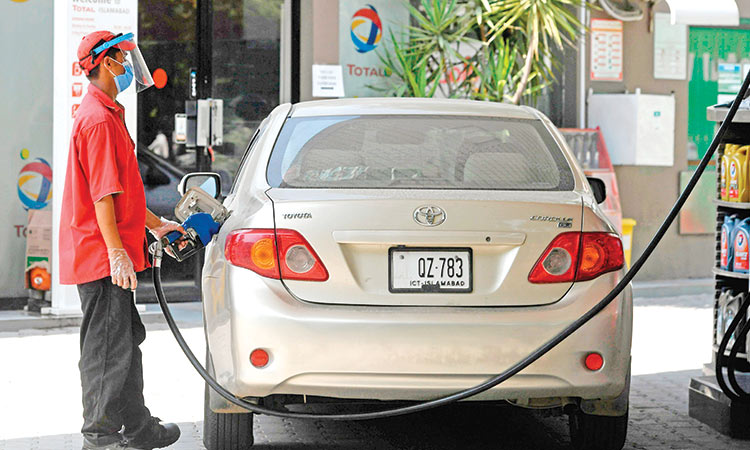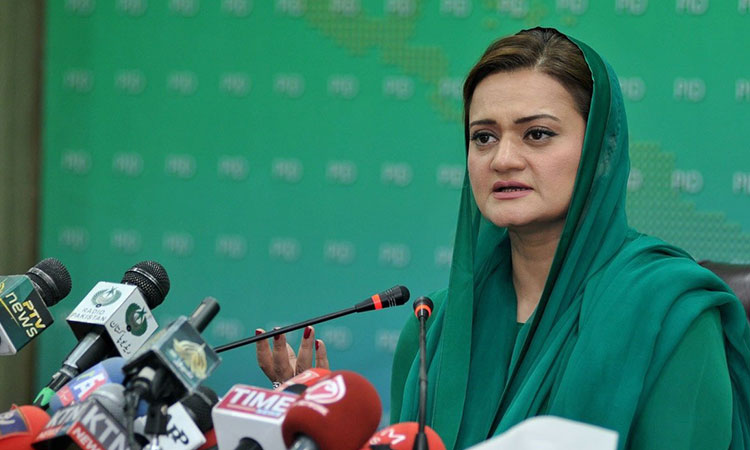Pakistan imports fall sharply in July, to help rupee stabilise: FM

Miftah Ismail addressing a press conference in Islamabad on Sunday. News Network International
July imports fell to $5 billion, down 35% from June’s record monthly high of $7.7 billion, Miftah Ismail told a news conference in Islamabad.
The central bank and Pakistan statistics bureau is yet to post its July data.
“This is very welcoming,” Ismail said, adding it was the result of his government’s ban on all non-essential imports. “It will remove pressure on rupee,” he said.
The rupee traded up slightly at 239.37 to the dollar on Friday, after shedding about 5% last week and more than a quarter of its value this year.
The ban on the import of non-essential goods was lifted last week, except for automobiles, cell phones and home appliances.
Ismail said his government has resolved to bring down the current account deficit significantly and to post a surplus in a year or two.
The South Asian nation has fast-depleting foreign reserves and is struggling to finance a widening current account deficit, which saw a $2.3 billion surge in June, mainly due to rise in oil imports.
The deficit for the financial year ending June 30 stood at $17.4 billion against $2.8 billion the previous year.
Earlier in July, Pakistan reached a staff level agreement with the IMF for the disbursement of $1.17 billion under a resumed payment of a bailout package.
The finance minister said that everyone should pay tax to save this country. “I have slapped tax on my own factories and on prime minister’s children as well,” he added. He announced tax relief on electricity bills of those shopkeepers who consume less than 150 units. He said that small retailers who are earning Rs1.2 million annually, they would have to pay Rs36,000 tax in a year.
Ismail said that his priority was not to control the inflation, rather he wanted to save the country from default. He said that he gave funds to utility stores so that they could sell flour at Rs40/kg; sugar at Rs70/kg and ghee at Rs300/L. “There is no doubt that inflation has increased in the country. But I cannot help it. We have to save country first. Soon pressure on rupee will ease and with this, prices of commodities will come down,” he expressed his optimism.
The finance minister informed that this year we had wheat in abundance. He said that from next month, the government would try to increase its exports.
Charter of Economy: The Islamabad Chamber of Commerce and Industry (ICCI) has on Sunday asked all the political parties to take the current economic situation very seriously and come forward to find an amicable solution to the ongoing crises.
In a first of its move in the country the business community of the federal capital has decided to take a lead to pressurise the political leaders in country to devise a “Charter of Economy”, so that there remains consistency in economic policies- irrespective of political change.
Past presidents and senior leaders of the ICCI, held a press conference here in the National Press Club, and announced that the ICCI will hold an “All Parties Conference for Revival of Economy on August 6.
Addressing the news conference Muhammad Shakeel Munir, President ICCI said that the grave economic situation faced by the country was nothing short of threat to the stability of the nation.
“The current economic meltdown is clear to you all, everybody is worried the whole nation is under the stress,” Mr Munir said adding, “But the most serious problem is that multilateral donors as well as friendly countries were reluctant to help Pakistan and this was a clear sign that a massive storm for the economy has arrived.”
Highlighting that apart from the overall economic situation faced by Pakistan which includes energy shortage, high inflation, heavy debts many things were not visible to the general public and their chain reaction can have serious consequences in the overall retail end, which will eventually hurt the consumers.
President ICCI said that the restrictions by the State Bank of Pakistan upon letter of Credit (LC) and sharp declining foreign currency reserves can lead to a situation where goods and items will be in short supply in the markets. “Such a situation will lead to public outcry and law and order situation mainly urban areas where the economy is totally based on consumerism,” he said.
He announced that in wake of the ground realities the Islamabad Chamber has decided to reach-out to all concerned decision makers and seek a solution to the economic crises. “We are organising an All Parties Conference in this regard on August 6, Saturday to highlight these issues with the decision makers,” While Khalid Iqbal Malik, former president ICCI and Group Chairman, said that the Conference is an a-political event and it was to bring all those who matter at one page, because the current situation can lead to threats to the stability of the country.







